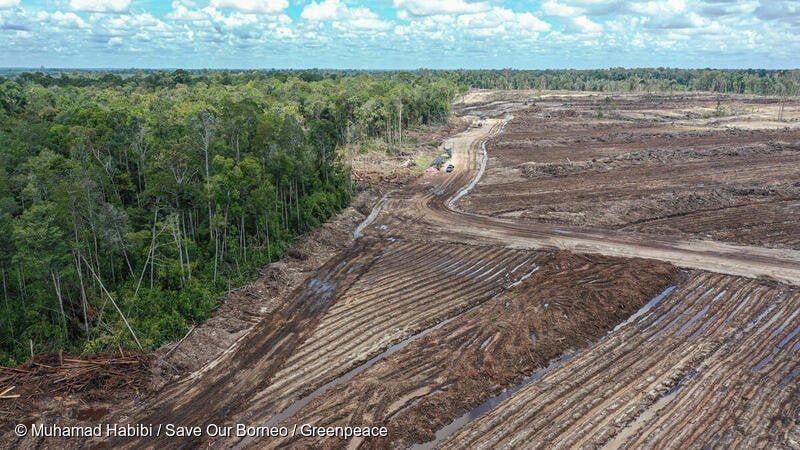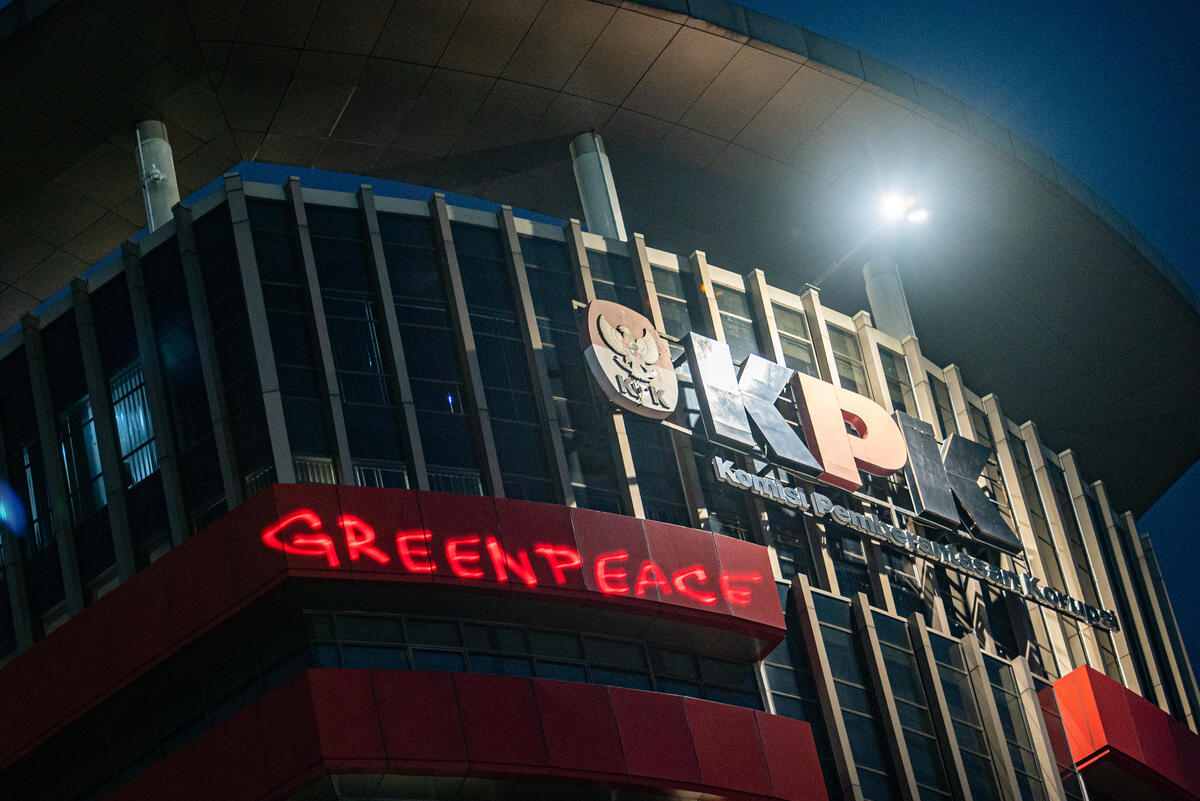81% agree that industries should stop polluting Western Java’s most important freshwater source
Jakarta- Greenpeace today called on the government of Indonesia to take immediate action to curb pollution of freshwater sources at the launch of a public campaign to protect the Citarum River. The launch of the Greenpeace Toxic Free Water project entitled “Citarum Nadi Ku, Mari Rebut Kembali” (Let’s Take Back Our Citarum), coincided with the release of a public opinion poll conducted by LP3ES that estimates that 81% of people in and around Bandung agree that industries should stop polluting Western Java’s most important freshwater source.
As part of the launch, activists from Greenpeace and PKK DAS Citarum (Citarum Community Activists) unfurled a giant banner with a “?”. Community members also collected river water in a glass jar, as a symbol that Indonesia’s people don’t know what toxic poisons are killing their beloved river.
“Greenpeace believes that the vision of a clean Citarum is achievable. We will work together with all stakeholders of this river to take back the Citarum. Poll results confirm that communities know that industrial pollution is poisoning their river, and has very dangerous impacts on their health, environment and livelihoods. With this project we hope to inspire people and catalyze a collective effort to enact solutions to save the Citarum,” said Ahmad Ashov Birry, Campaigner, Greenpeace Southeast Asia.
“Issues of land degradation, erosion, sedimentation, flood, drought and industrial pollution are consequences of massive land use change in Citarum’s basin for the sake of industrial corporations. Therefore PKK recommends spatial policy reform, reconstruction of green areas around Citarum basin, rehabilitation of critical land in the upstream, implementation of clean production and strict law enforcement,” said Deni Riswandini from PKK DAS Citarum.
The Citarum river provides freshwater for most of West Java Province and also supplies 80 percent of Jakarta (1). However, the river is recognized as one of the dirtiest in the world (2) Overuse and increasing industrial pollution over the last twenty years has severely damaged the river. Citarum supports 20 percent of Indonesia’s industrial output (3) with thousands of factories on its banks and in its basin, which pump their toxic effluents into the river. More visible pollution includes plastic rubbish and domestic and municipal waste such as raw sewage.
Poll results revealed by Greenpeace and LP3ES reinforce ‘common knowledge’ that industrial waste is polluting Citarum. 79.8% public of DAS Citarum believe that the river is polluted by industrial waste. 92.3% of those polled know that industrial waste pollution have very dangerous impacts on the environment and livelihoods. 82.5% agree that industry should be responsible for their pollution; and 81% agree that industry should stop releasing their waste to the river. Meanwhile, 80.3% of those polled agree that the government should institute stronger regulations to prevent industry from polluting the river and 68.3% agree that the public should have easy to access information regarding toxic wastes produced by industries.

Greenpeace called on the government of Indonesia to take immediate action to curb pollution of freshwater sources at the launch of a public campaign to protect the Citarum River. The launch of the Greenpeace Toxic Free Water project entitled “Citarum Nadi Ku, Mari Rebut Kembali” (Let’s Take Back Our Citarum), coincided with the release of a public opinion poll conducted by LP3ES that estimates that 81% of people in and around Bandung agree that industries should stop polluting Western Java’s most important freshwater source.
“Polling was conducted in April 2011 amongst 400 respondents from 20 villages along the Citarum watershed, from upstream to downstream,” said Kurniawan Zein from LP3ES.
“We must work together to confront and stop massive pollution in order to restore Citarum River. Greenpeace is calling on industries to immediately stop polluting the river with chemical waste. We are calling on the government to enforce stricter monitoring and take firm action against polluters and to give public information on toxic chemicals that pollute the river on which millions of Indonesians depend,” concluded Ashov.
Greenpeace is an independent global campaigning organization that acts to change attitudes and behaviour, to protect and conserve the environment and to promote peace.
Notes to the Editor:
- Asian Development Bank, Integrated Citarum Water Resources Management Investment Program
- Asian Development Bank, Integrated Citarum Water Resources Management Investment Program
- http://www.newenergyworldnetwork.com/renewable-energy-news/by-technology/water/asian-development-bank-approves-500m-loan-to-improve-worlds-dirtiest-river.html
Media Contact:
Hikmat Soeriatanuwijaya, Greenpeace Southeast Asia Media Campaigner +628111 805 394



